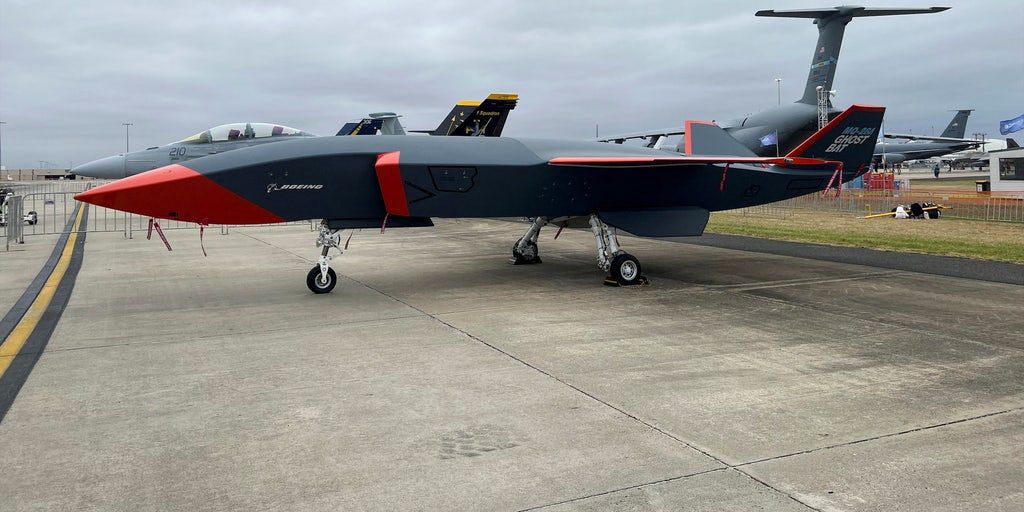The Pentagon is set to explore the development of innovative artificial intelligence-guided aircraft by offering two contracts that multiple private companies are vying for.
Within the scope of the $6 billion initiative lies the Collaborative Combat Aircraft (CCA) project, aimed at introducing over 1,000 new drones to the U.S. Air Force. These drones are intended to operate alongside manned aircraft, providing protection and support as escorts armed with full weaponry. They can also serve as scouts or communication hubs, as detailed by The Wall Street Journal.
Competing for the CCA contracts are industry giants such as Boeing, Lockheed Martin, Northrop Grumman, General Atomics, and Anduril Industries. General Atomics, known for supplying the Reaper and Predator drones utilized in various Middle East operations, stands alongside Anduril Industries, a newcomer established in 2017 by Palmer Luckey, the creator of Oculus VR.
Despite outreach from Fox News Digital, the companies involved either chose not to respond or declined to comment on their pursuit of the CCA contracts.
Europe Aims to Establish Itself as a Leading Authority in AI with New Office
Among the contenders, Boeing has revealed its entry named the Ghost Bat, measuring between 20 to 30 feet in length. This aircraft can reach speeds just below the sound barrier and cover over 2,000 nautical miles.
Boeing’s aircraft is designed to complement existing military planes, enhancing airborne missions with features like tactical early warning, intelligence gathering, and reconnaissance capabilities. Notably, the manufacturer highlights the cost-effective design of the Ghost Bat.
?x-oss-process=image/auto-orient,1/quality,q_90/format,webp)
Cost efficiency is a key factor driving the Pentagon’s interest in advancing this project using AI technology.
Deputy Secretary of Defense Kathleen Hicks emphasized the deployment of AI-enabled autonomous vehicles to offer cost-effective, expendable units that can bolster U.S. military operations. This shift aims to accelerate innovation within the military, addressing the need for agile and efficient solutions.
Anduril has showcased the Roadrunner, an AI-powered combat drone capable of jet propulsion and AI-guided navigation. Christian Brose, Anduril’s Chief Strategy Officer, described it as an affordable, high-volume, and increasingly sophisticated aerial asset in an interview with Wired.
Understanding Artificial Intelligence (AI)
While Anduril has not confirmed if the Roadrunner will be its CCA submission, the drone exemplifies the company’s potential. Featuring twin turbojet engines, vertical take-off and landing capabilities, and adaptable payload configurations, the Roadrunner showcases advanced loitering capabilities. Anduril also promotes a high-explosive interceptor variant on its platform.
The Roadrunner-M variant, with its rapid launch and interception capabilities against diverse aerial threats, underscores Anduril’s innovative approach to drone technology.
?x-oss-process=image/auto-orient,1/quality,q_90/format,webp)
General Atomics has actively promoted its CCA ecosystem, demonstrating the Avenger Unmanned Aircraft System alongside digital twin aircraft for autonomous collaborative combat missions.
The company’s tests in late 2022 showcased the potential of AI and Machine Learning in enhancing decision-making for military platforms under dynamic conditions. General Atomics aims to set a new standard for mission system capabilities on CCA platforms, as stated by Michael Atwood, the Senior Director of Advanced Programs at General Atomics.
?x-oss-process=image/auto-orient,1/quality,q_90/format,webp)
Lockheed Martin has integrated AI into its VISTA X-62A training aircraft, enabling autonomous flight for extended durations. This development has garnered praise from the U.S. Air Force Test Pilot School at Edwards Air Force Base in California for its potential to advance air tactics and combat capabilities rapidly.
Northrop Grumman has not disclosed its potential AI CCA unit, while the Pentagon did not provide a response to queries from Fox News Digital at the time of publication.
The Associated Press contributed to this report.










